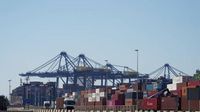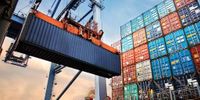Spain's trade relationship with the United States is facing significant challenges following the recent announcement by former President Donald Trump to impose a 20% tariff on exports from the European Union. This decision, which Trump referred to as a move to stimulate the American economy, is expected to have a profound impact on various sectors of the Spanish economy, particularly in regions like Andalusia, which is the second-largest Spanish community exporting to the US.
According to data from DataComex, the Ministry of Economy, Trade, and Industry, Spain exported goods worth €18.179 billion to the United States in 2024. This figure reflects a decrease of 3.8% from the previous year, primarily due to the looming tariffs. The main products exported include machines and mechanical appliances valued at €2.510 billion, electrical appliances at €1.503 billion, and animal or vegetable fats and oils at €1.246 billion. Other significant exports include fuels, pharmaceutical products, and essential oils.
Andalusia's exports to the US reached €3.138 billion in 2024, accounting for 17.3% of Spain's total exports. The region's exports are particularly noteworthy as they include key products like olive oil, which saw a 50% increase in exports to €860 million. This surge makes the US and Italy the top markets for Andalusian olive oil. Other notable exports from Andalusia include petroleum refining, cement products, and even aircraft parts.
As the tariffs take effect, starting with a base rate of 10% on April 5, followed by additional personalized tariffs on April 9, stakeholders in Spain are expressing concern. The president of the Confederation of Business Associations in the Valencian Community, Salvador Navarro, voiced his “logical concern” over the potential repercussions of these tariffs, particularly as they come during a time of existing economic uncertainty.
In response to these challenges, the Junta de Andalucía is working closely with affected companies to mitigate the impact of the tariffs. The regional government, led by Juanma Moreno, is preparing a package of incentives aimed at promoting internationalization, which is expected to be unveiled in May 2025. This initiative is part of a broader strategy to diversify both the products exported and the markets reached, with notable increases in sales to countries like China and Morocco.
Madrid, which ranks as the second-largest city exporting to the US after Barcelona, is also bracing for the impact of the tariffs. The vice mayor of Madrid, Inma Sanz, has publicly stated the city council's opposition to the Trump administration's measures, emphasizing their commitment to defending the interests of Spanish businesses.
In light of the tariffs, the Club of Exporters and Investors has estimated that Spanish exports to the US could drop by as much as 25%, resulting in potential losses of around €4.3 billion and a slight negative impact on Spain's GDP of about 0.3%. The Spanish chemical-pharmaceutical industry, a significant player in US trade, is particularly vulnerable, with projections of a potential decrease in exports by up to 16.5% due to the tariffs.
In addition to the economic implications, the tariffs have sparked a broader discussion about trade relations between the US and the EU. Ursula von der Leyen, the president of the European Commission, described the tariffs as a “harsh blow to the global economy.” In response, Spanish Prime Minister Pedro Sánchez announced a mobilization of €14.1 billion to support affected sectors and businesses.
As the situation develops, industry leaders and government officials continue to advocate for collaboration between regional and national governments to address the challenges posed by the tariffs. The emphasis on unity is echoed by labor leaders in the Valencian Community, who have called for collective action to protect jobs and the economy.
Overall, the upcoming tariffs represent a complex challenge for Spain's economy, particularly for its export-driven sectors. As companies brace for the financial impact, the focus will be on resilience and adaptation in an increasingly uncertain global trade environment.








